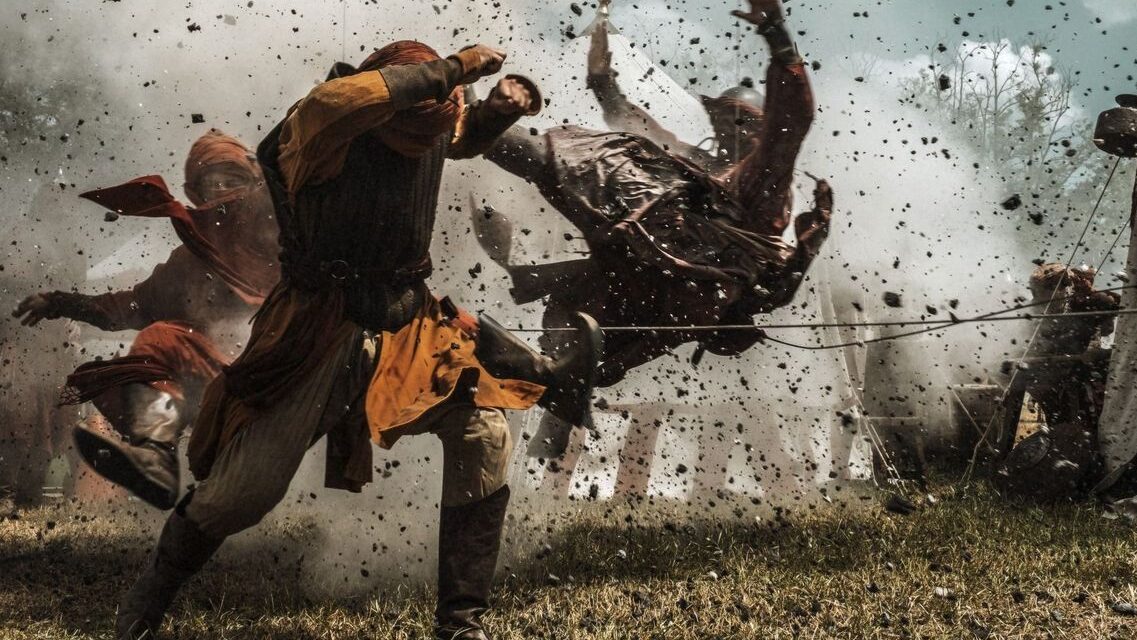Hunyadi can count on worldwide success.
The first parts of the Czech-Hungarian mini-series A nzemtst láya became available on Direct One a few days ago. The story takes you back to the time of the Czech aspirations for independence and the beginning of emancipation, with the clownish humor characteristic of Czech films. Magyar Nemzet spoke with Mór Bán, the author of the Hunyadi book series, about the importance of historical films, the debts of Hungarian (film) culture in this direction, and, in addition to the upcoming Hunyadi TV series, also about the Daughter of the Nation itself.
Making a historical film is not only expensive, but also an extremely complex undertaking: although the primary purpose of these productions is entertainment, they shape the viewers' perception of history much more strongly than elementary school history lessons. Thus, the expectation of historical authenticity can rightly be raised, even though we are talking about a fiction genre. But what does this credibility come from?
The daughter of the nation and the Hunyadi series
– For me, the most important thing is to make the reader fall in love with and bring closer to the given historical era, and for this I have to create the milieu, the atmosphere that characterizes it. This requires a lot of investigation and research. You need to know the environment where the story takes place. All this while the novelist is obviously not a historian.
The novel is a fictional genre, with dramaturgical necessities, regardless of this, there are as many different approaches as there are authors. Meanwhile, we see that views often clash in the scientific profession, there is no single exclusive narrative regarding the bulk of the events of the past
- starts answering the question Mór Bán, whose extremely successful Hunyadi book series will soon be made into a large-scale film series, and he himself is an unconditional supporter of historical productions, but especially series.
– What I think is a red line is the deliberate falsification of history. When a certain era or person is portrayed on a political or worldview basis in such a way that it corresponds to a very powerful current political agenda. I find it hard to classify this as creative freedom - continues the author of Hunyadi. A Viking king played by an actress of color already crosses this line, in comparison, the fact that the costumes and sets of a series or film - sacrificed on the altar of the spectacle - do not fully reflect the clothing of the time, seems like splitting hairs for its own purposes, even if it is welcome, if also pay attention.
From this point of view, The Daughter of the Nation cannot be considered the most authentic series, and the anachronistic gestures of the production are just a kind of postmodern winks, the XIX. together with them, or precisely through them, he is able to grasp the milieu of 19th century Prague.
– For my taste, these elements are already a bit excessive, but I appreciate the attempt and they probably hit the target for the younger age group. It is no coincidence that filmmakers are increasingly turning in such directions. I also like the self-irony of the production. Despite the obvious differences, the Czech national awakening can be related to the Hungarian feeling of the reform era of 1948, and this story is practically about the Czech Júlia Szendrey, their lives showed several similarities - the author explores the parallels and the possible connection points of the domestic audience, before stating one of the most serious, yet most common mistakes related to historical films, which the Czech series also makes.
– These films often project a way of thinking that exists today back to an era that operated within completely different frameworks. History is interesting precisely because it examines everything based on the standards of its time. – However, it should be said in the apology of The Nation's Daughter that, although it seems to look at the society of the time with an overly modern, feminist perspective, for the time being it does so with humor rather than condemnation.
In addition to the method of implementation, what we choose from the endless array of topics is even more important. – The problem is when we do not deal with certain historical periods and events at all. - the author refers to the simple fact that practically no motion picture content was produced for a significant part of Hungarian history, thereby painting a distorted, one-sided picture of the national past.
Only in recent years has the process started that specifically encourages the production of these films (see: Blokád, Tündérkert, Semmelweis, etc.), but we still have to pay off a huge debt. - There has not yet been a serious historical feature film made about King Szent István and King Matthias. Not a cartoon, not a rock opera, not a costume drama, but a classic feature film. The trauma of Trianon was also only dealt with in the excellent film My Mother and Other Running Fools from the Family. The filmmakers forgot to process and show what our grandparents and great-grandparents went through at that time.
This cannot be an accidental misunderstanding or omission, but a conscious cultural political decision. But here we don't have to think about the individual films, but about the processes.
The II. Many films have been shot about the genocides and atrocities of World War II, but until now, for example, there has not been an experiential motion picture processing of why the bell tolls in the south and what European civilization owes us.
And there is still so much we haven't talked about, we haven't processed, even though all nations around the world do this, they consider it important to present the national image in a positive way. I have a lot of respect for everyone who tries to change the previous false, distorted image - said Mór Bán.
The upcoming Hunyadi also aims for this healthier, more balanced, and not based on self-flagellation and self-flagellation historical perspective. – The series is about a hero who did not necessarily want to be a hero, yet the mission falls on him to protect the nation, Christianity and all of Europe.
– I think it will be a whirlwind, adventurous historical series, the frame of which is given by the well-known life path
says the writer. Mór Bán also reveals that he has high hopes for the last, almost movie-length episode of the series, where the siege of Nándorfehérvár comes to life. - This is a long-standing debt to Hungarian film production, and the crew and creators have done everything to ensure that Hunyadi's epic is shown on the screen at a world-class level, with a worthy setting. So that we can finally tell something uplifting, a heartwarming, but at the same time true story about the Hungarian past - concludes the writer.
Featured image: Hungarian Motion Picture Festival Facebook page













